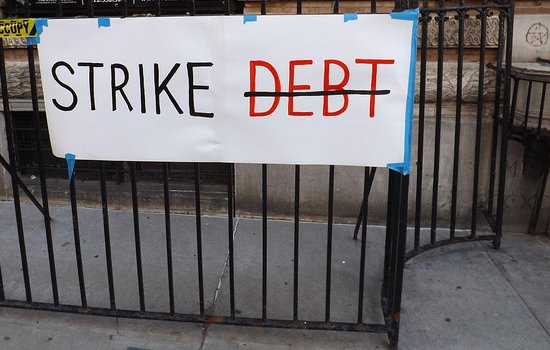
#1 School Loans
Student debt averages roughly $30,000 per graduate and even people into their 60s now have student loans weighing them down. When federal student loans go into delinquency, the Department of Education can garnish your wages without filing a lawsuit. In North Carolina, federal student loans are one of the few legal garnishments that can be taken from your pay. And once a student loan garnishment begins, it can be difficult to deal with or end. Oppressive student loan debt can ruin credit ratings, prevent you from buying a home, car or getting a job that requires a good credit rating.
#2 Illness or Disability
A severe illness or medical problem that limits the ability to work can prove disastrous to your finances. This often leads to medical bills that can overrun what your insurance will cover and leave you with thousands or even tens of thousands of dollars of debt you can't afford to pay. Time lost from work, even in the short-run can exacerbate this situation and allow debt to go from a challenge to pay to an impossibility. And an illness or disability that is long-term or permanent can make this a non-recoverable proposition without a serious debt intervention of some sort.
#3 Transportation Problems
Car trouble is the worst. If you don't have an emergency fund to bail you out, a major car repair can be unaffordable and leave you without a way to get to work. This can lead you to make other poor choices like taking a cash advance on your credit card, maxing out your credit lines, or purchasing a new car when you can't truly afford the car payment. If you're still paying on the old car that's having troubles, this can make a bad situation even worse. And being without a vehicle may mean that you could lose your job if you can't find an alternate means to get to work.
#4 Taking on Debt for Others
If your family hits hard times, you may feel like you have to help them. This can lead you to drain your savings, run up credit cards, cosign loans for them or whatever else you need to do to help them stay afloat. Older parents often go into debt to help their adult children (and even grandchildren) to stay afloat financially, often to their detriment. And on the flip side, many adult children may take a financial hit to help their aging parents afford medical care, in-home medical support, or a retirement or nursing home. Situations like these can wipe out more than one generation financially.
#5 Chronic Overspending
While most of these other common sources of troublesome debt are out of your hands and may happen as a result of circumstance, this last one is entirely self-inflicted. If you're not good at saving or if you routinely spend every penny of your paycheck on non-necessities, if you keep your credit cards maxed out because you can't stop buying clothes, electronics, eating out or partying, you can wreck your finances. Some overly-indebted consumers grew accustomed to a certain lifestyle then when their income dropped, they didn't adjust their spending down.
You may live in a nice house, drive a newer car and try to keep up appearances but are drowning in debt. You may be living paycheck to paycheck but don't want your friends, coworkers or family to know you're on the brink of a financial disaster. Chapter 7 and Chapter 13 bankruptcy are both viable options to get you out of debt and give you the financial fresh start and peace of mind you deserve. Please read the original post on our affiliate site, BillsBills.com
